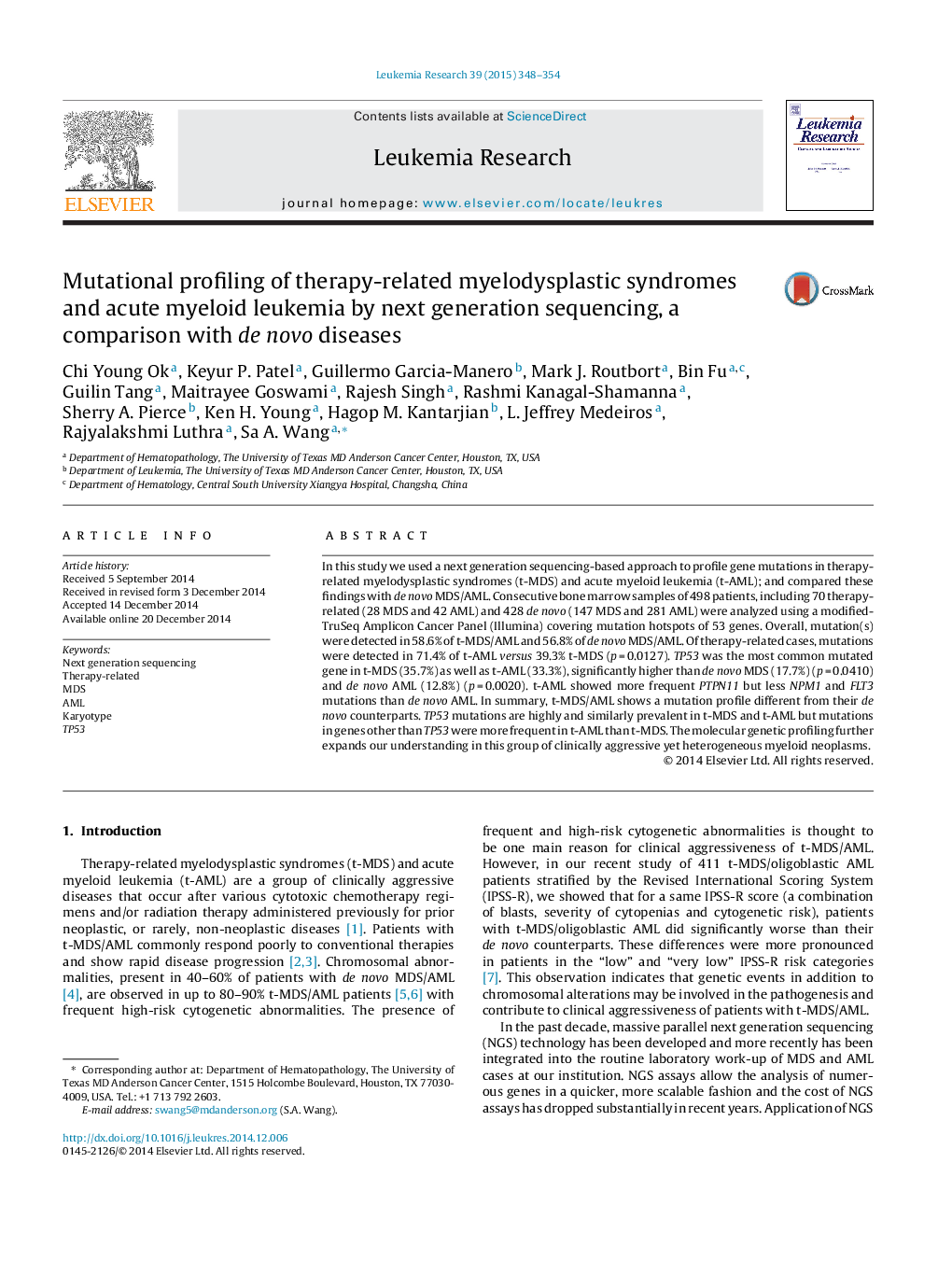| Article ID | Journal | Published Year | Pages | File Type |
|---|---|---|---|---|
| 2136690 | Leukemia Research | 2015 | 7 Pages |
•Mutation profile of t-MDS/AML is different from their de novo counterparts.•Mutation profile is different between t-MDS and t-AML.•TP53 mutations are associated with a complex karyotype in both groups of MDS/AML.•Different molecular profiling may contribute to clinical heterogeneity of MDS/AML.
In this study we used a next generation sequencing-based approach to profile gene mutations in therapy-related myelodysplastic syndromes (t-MDS) and acute myeloid leukemia (t-AML); and compared these findings with de novo MDS/AML. Consecutive bone marrow samples of 498 patients, including 70 therapy-related (28 MDS and 42 AML) and 428 de novo (147 MDS and 281 AML) were analyzed using a modified-TruSeq Amplicon Cancer Panel (Illumina) covering mutation hotspots of 53 genes. Overall, mutation(s) were detected in 58.6% of t-MDS/AML and 56.8% of de novo MDS/AML. Of therapy-related cases, mutations were detected in 71.4% of t-AML versus 39.3% t-MDS (p = 0.0127). TP53 was the most common mutated gene in t-MDS (35.7%) as well as t-AML (33.3%), significantly higher than de novo MDS (17.7%) (p = 0.0410) and de novo AML (12.8%) (p = 0.0020). t-AML showed more frequent PTPN11 but less NPM1 and FLT3 mutations than de novo AML. In summary, t-MDS/AML shows a mutation profile different from their de novo counterparts. TP53 mutations are highly and similarly prevalent in t-MDS and t-AML but mutations in genes other than TP53 were more frequent in t-AML than t-MDS. The molecular genetic profiling further expands our understanding in this group of clinically aggressive yet heterogeneous myeloid neoplasms.
